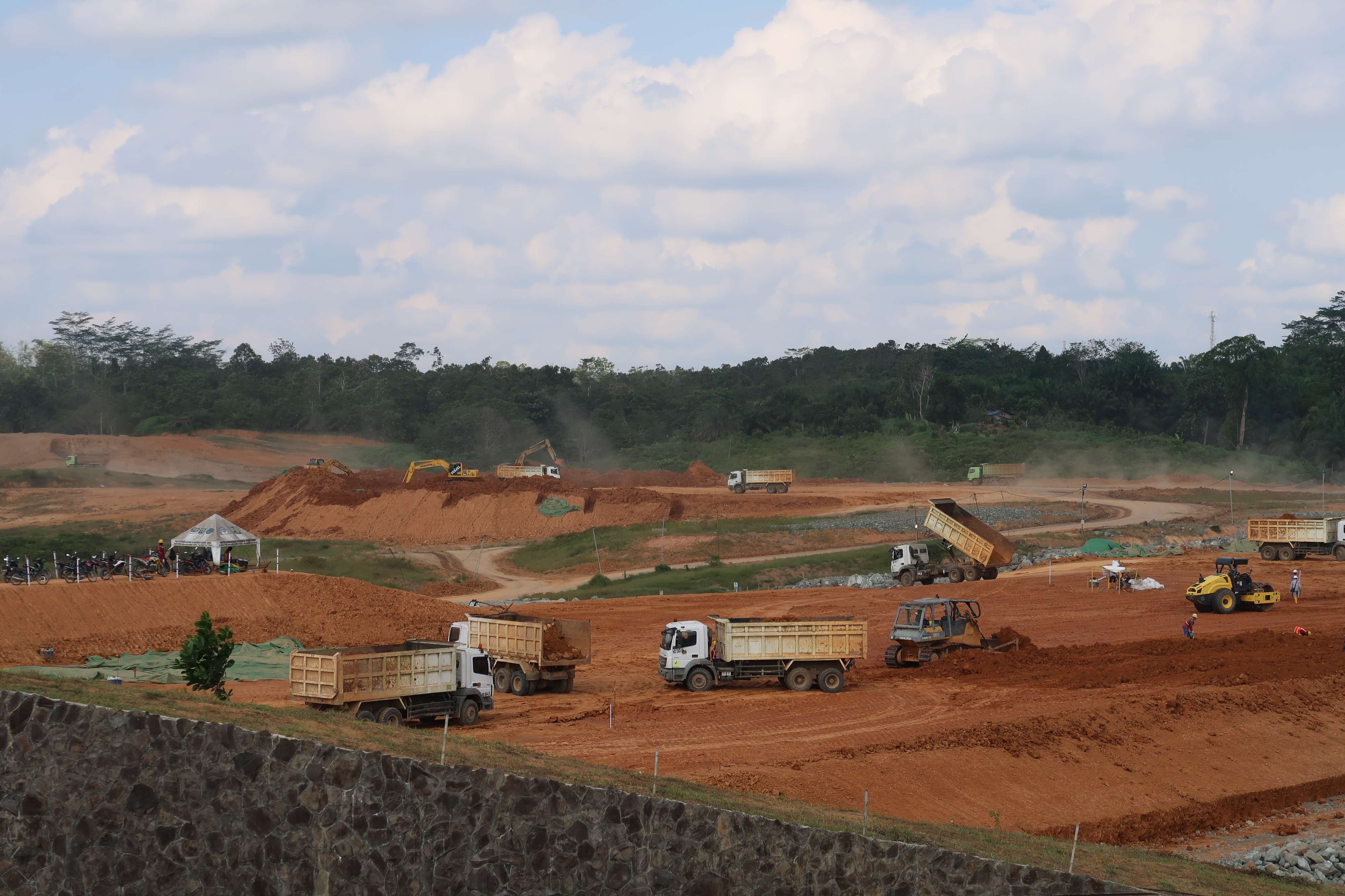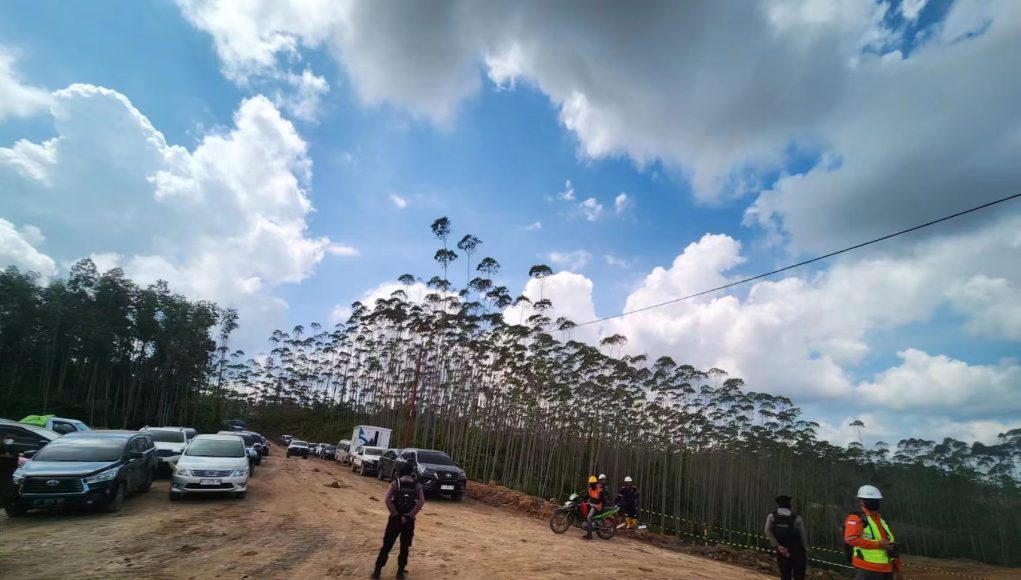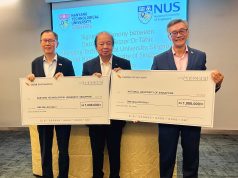By James Zhang
(Singapore, 6 June 2023) The new capital city of Indonesia, Nusantara, which has received approval from lawmakers, is still grappling with uncertainties regarding future political elections, investment funding, and the difficulty in measuring environmental impact, according to an Indonesian scholar from the National University of Singapore (NUS).
“The success of the project will depend less on regulations and more on its implementation,” said Johan Sulaeman, an associate professor at NUS Business School and the director of the Sustainable and Green Finance Institute.
In early 2022, the Indonesian House of Representatives passed a law to relocate the country’s capital city from Jakarta to Nusantara, a site located on the island of Borneo, the world’s third-largest island shared by Malaysia and Brunei.

Unlike other planned cities, Nusantara, which means “archipelagos” in Indonesian, is envisioned as a smart green metropolis powered by renewable energy. Covering an area of nearly 2,600 square kilometers, four times the size of Singapore, Nusantara aims to replace the overcrowded and rapidly sinking current capital, with a total investment of US$32 billion (S$43 billion).
However, Johan said that the progress of this unprecedented cross-island capital relocation project will hinge on the level of support it garners over the next two decades.
“While it would be impractical to reverse the decision, the extent to which political and economic activities will be relocated remains uncertain,” said Johan, emphasizing that the success of the capital relocation ultimately lies in the hands of Indonesia’s future leaders during upcoming presidential and parliamentary terms.

With President Joko Widodo in the final year of his second term, the next election in February 2024 will determine Indonesia’s next President. The three major candidates vying for the presidency are Ganjar Pranowo, the governor of Central Java province and a member of the Indonesian Democratic Party of Struggle; Prabowo Subianto Djojohadikusumo, the country’s currently-appointed Minister of Defense and a member of the Gerindra Party; and Anies Rasyid Baswedan, an independent who previously served as the Governor of Jakarta from 2017 to 2022.
Ideally, Johan explained, Jakarta will continue to serve as the country’s financial center on the island of Java, home to more than half of Indonesia’s population. Nusantara, the new capital, will then become an economic engine driving development in the rest of Indonesia.
“We hope to see a ‘two-engine’ approach for the country’s future development. However, besides political support, the new capital requires investment, technology, and education to sustain its development,” Johan said.
Currently, the Indonesian government has committed only 20% of the projected cost, with the rest of the funding expected to come from the private sector.
Last week, Luhut Binsar Pandjaitan, Indonesia’s Coordinating Minister of Maritime and Investment Affairs, told a 130-member delegation from Singapore to Nusantara that the development of Nusantara was proceeding as planned and emphasized Singapore’s significance as a crucial source of investment for the project.
Agung Wicaksono, Deputy for Funding & Investment of the Nusantara National Capital Authority, revealed that at least 233 companies from 17 countries, including 22 companies based in Singapore, have sent Letters of Intent to the Indonesian government. However, the number of concrete investment deals is yet to be determined, which raises concerns for Johan.
“We need to see some initial private investors before others follow suit,” Johan said, stressing the potential role of the project in geopolitics during the US-China tensions, with investors from both countries, particularly China, expected to be involved.
Johan also emphasized the importance of attracting world-renowned universities to establish themselves in Nusantara as an innovation center, akin to the likes of California in the US and Shenzhen in China. He believes that the new capital’s research environment would benefit from the addition of global top-tier universities, including some from China.
Bambang Susantono, Chairman of the Nusantara National Capital Authority, told Fortune Times that his authority has been in negotiations with one of the world’s top five universities to open a new campus in Nusantara. Additionally, the Jakarta International School has expressed its interest, although neither have finalized their plans.

Regarding the new capital’s environmental impact, Johan said that the long-term nature of the project will make it very challenging to quantify the impact on the wildlife cycle over the years. Therefore, an accurate valuation of the environmental and biodiversity losses will not be possible.
“For example, if there are unfinished buildings due to a lack of future funding, they would have a tremendous influence on the environmental conditions of their neighboring areas,” he explained.
Transportation between Jakarta and Nusantara is another potential environmental concern since both air and land transportations emit greenhouse gasses. Currently, Indonesia has no plans to build a new airport in Nusantara, and therefore, it would rely on the international airport in Balikpapan, approximately a two-hour drive away. Furthermore, the distance between Jakarta and Nusantara is about 2,000 kilometers.
Johan said that if only parts of the capital are relocated, frequent transportation between the old and new capitals would lead to even higher emissions.
Indonesia has officially announced the inauguration of the new capital city, Nusantara, on August 17, 2024, which coincides with Indonesia’s 79th anniversary of Independence, with the presence of the President and ministers.





































